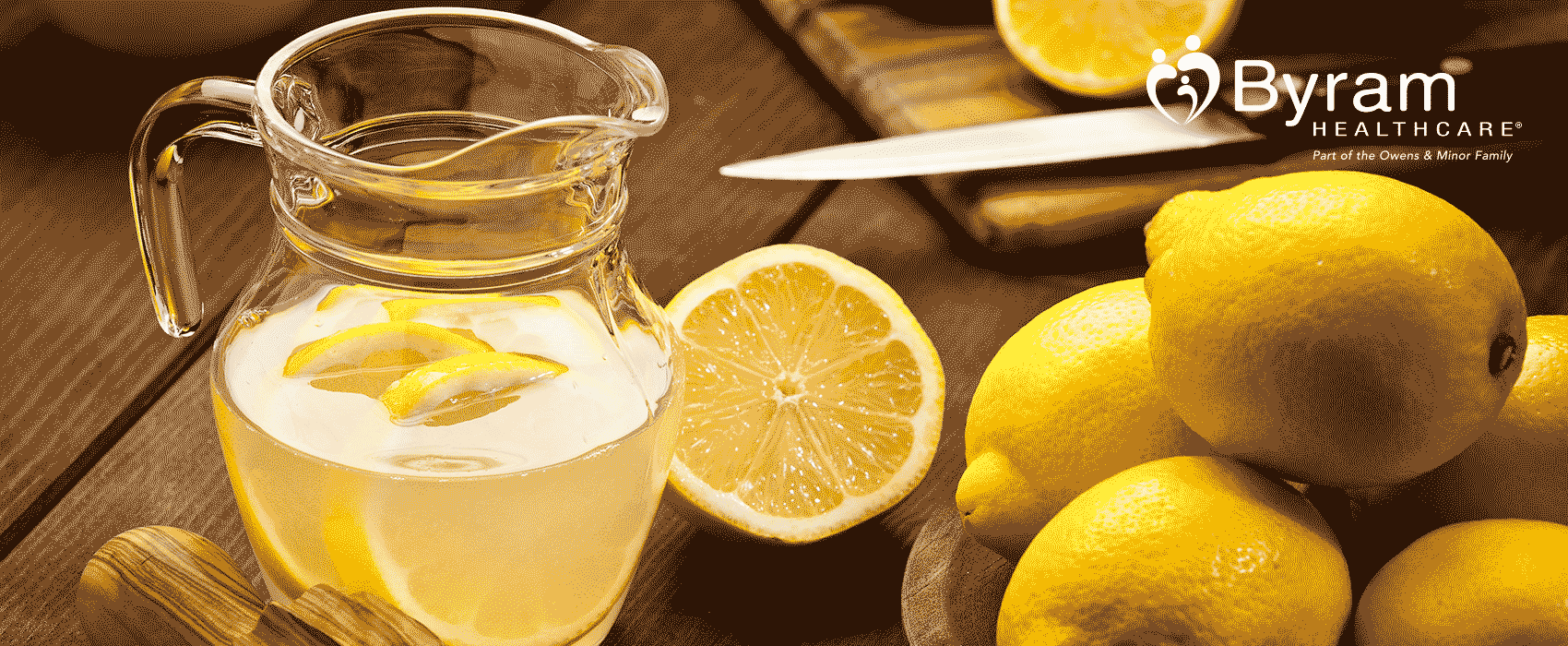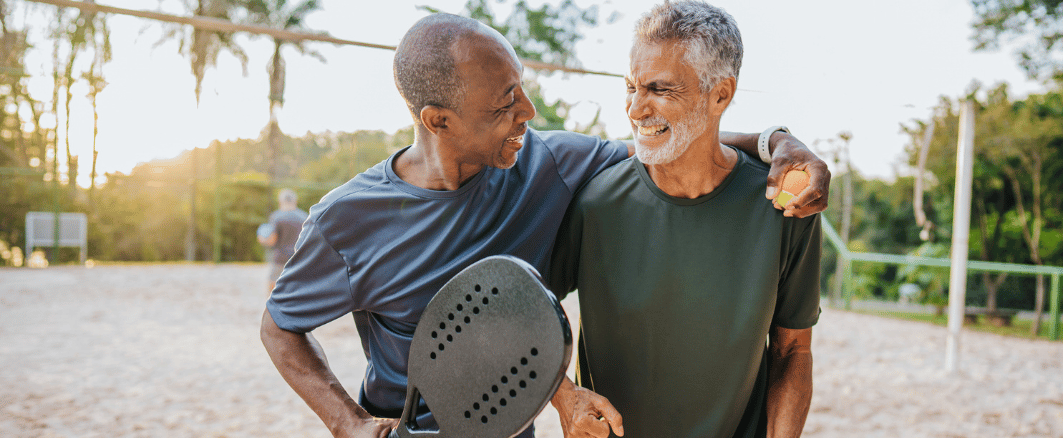
Your bladder is an important part of the urinary tract system. It’s an essential pear-shaped organ made out of expandable components that holds on to urine until it’s expelled from your body. The bladder itself is quite impressive and is able to stretch from about two inches to over six inches long, depending on the amount of liquid it’s holding.1 In a typical person, your bladder will reach capacity when it fills up with about 16-24 ounces of urine, but most people start to feel the urge to urinate when it is only 25% full.1 At this point, your body starts to send nerve signals to the brain indicating that it’s time to find a restroom. When you proceed to use the bathroom, there is a mixture of voluntary and involuntary muscles working to lead urine from the bladder, through the urethra, and out of the body.
Your bladder works hand-in-hand with your kidneys to filter fluid and wastes from the bloodstream. They are the primary parts of the urinary tract system. The byproduct from this process is urine. When your bladder isn’t functioning properly, it can lead to a number of problems.
Normal functioning requires a coordination of neurologic, musculoskeletal, and psychological functions that result in the conscious and voluntary emptying of your bladder.1 Abnormal functioning can result in incontinence issues, leakage, backflow, and other common urinary system problems. To avoid these problems, it’s important to take the proper steps to care for your urologic health. This includes eating a healthy diet that’s rich in nutrients and vitamins. To help you eat foods that help your body, here are 10 foods that are great for bladder health.
Top Foods for Bladder Health
-
Garlic
Garlic is a natural antibiotic that has hundreds of different health benefits. It’s been used for centuries as a medicine and is now even sold in supplement form for those who don’t like the taste. Garlic has been shown to treat digestion issues, internal and cutaneous infections, parasites, and even fatigue or low energy issues. Garlic is also a great way to fend off any UTIs and make sure that your bladder is as healthy as possible. Thankfully, garlic is a great addition to many home-cooked meals and can be eaten in every form. It can even be made into a delicious dressing for salads or vegetables. If you’re not a fan of the taste of garlic, or would prefer to supplement it, there are plenty of options for you to choose from. Talk to your doctor when starting new supplements, especially if you’re taking any medications.
-
Bananas
Bananas are high in potassium and fiber, which can help encourage regular bowel movements and flush out your urinary tract. If you don’t have regular bowel movements, your intestines can become enlarged and cause pressure on your urinary tract. This added pressure makes urine flow more restricted and can lead to urinary problems throughout the day. Plus, since banans a non-acidic fruit, they won’t irritate your bladder and will instead give you nutrients that you need in a balanced diet.
-
Pears
Some people believe that eating fruits that are shaped like certain organs or body parts will help that specific area. While we’re not quite sure about other claims, pears are great for your bladder—a pear shaped organ. Pears are a healthy fruit that have a lower sugar content but are still satisfying to a sweet tooth. They’re loaded with dietary fiber, which can help facilitate regular bowel movements. Pears also have more antioxidants than many other fruits. Pears are great by themselves or they can be added to salads, smoothies, or used as an apple substitute in baking.
-
Berries
Berries are some of the best fruits that you can eat regularly due to their low sugar content and high antioxidant levels. While cranberries are the most commonly used type of berry for bladder health, other types of berries have similar effects. Strawberries, raspberries, and blueberries have high levels of vitamin C, which can help your bladder stave off bad bacteria. Berries have high water content, so they can also help you flush out your urinary tract system throughout the day to avoid UTIs. Berries are great when eaten alone, but can be added to smoothies, salads, or other delicious recipes.
-
Nuts
Nuts are a great, heart-healthy food that provides you with much needed protein and healthy fats. While most nuts are bladder friendly, certain nuts can cause irritation. For the best options, stick to almonds, cashews, and peanuts.
-
Cruciferous Vegetables
Cruciferous vegetables are some of the healthiest types of vegetables due to their cancer-fighting properties. They include things like arugula, bok choy, broccoli, brussels sprouts, cabbage, cauliflower, kale, radish, and turnips. These vegetables are filled with vitamins C, E, K, and plenty of folate and fiber to encourage bladder health. You can eat them roasted, raw, or even add them to a smoothie.
-
Potatoes
If you’re looking for a comfort food that won’t irritate your bladder, potatoes are the best option. They’re extremely versatile and a great food to eat when the weather starts to cool down. Plus, there are so many varieties of potatoes—over 4,000 in the world—so you have plenty of options for taste preference. The best types of potatoes for your bladder are regular russet potatoes and sweet potatoes.
-
Lean Protein
Lean proteins are one of the best proteins to eat when trying to avoid bladder irritation. They’re best eaten when you steam, broil, or bake them. Avoid frying these lean proteins or cooking them in too much oil as this can lead to irritation. Some good lean proteins for bladder health include low-fat chicken, pork, turkey, beef, and fish.
-
Eggs
Eggs are another great source of protein that you can eat without fear of bladder irritation. They’re actually considered some of the least bothersome foods for many bladder conditions and are an important part of a balanced diet.
-
Whole Grain
Finally, whole grains and bread are great options to give you healthy carbohydrates without causing bladder problems. Quinoa, rice, and oats are good options for whole grains and most breads can be eaten without an issue. If you have celiac or any gluten sensitivities, talk to your doctor about a healthy alternative.
Choosing Healthier Drinks
Another thing that can severely impact your bladder health is the types of drinks you’re consuming on a regular basis. Caffeine, while helpful in the mornings, is a bladder irritant and can cause disruptions in your body’s communication signals. Sugary drinks like soda pop or sports drinks can cause stress on your bladder and lead to irritation. Alcoholic beverages have been shown to worsen bladder problems, so only drink in moderation to stay healthy. If you’re not a fan of plain water, there are still plenty of healthy drinks you can choose from.
Different Types of Tea
To avoid excess caffeine, try switching to herbal tea of fruit-based teas. You can slowly ween yourself off caffeine-heavy teas to avoid any withdrawal symptoms, but eventually it’s well worth the effort. There are plenty of different varieties of fruit and herbal teas to choose from. If you’re not a fan of drinking hot tea, make a pitcher of iced tea and flavor it with some lemon, mint, or cucumber. Kohli tea has also been shown to have a protective effect on your bladder and is recommended for those who are currently struggling with bladder problems.1
Certain Fruit Juices
Some fruit juices are filled with excess sugars and are bad for your bladder, but others have some great benefits. Cranberry juice can help keep your bladder’s bacterial levels balanced and can prevent urinary tract infections. Pear or apple juice is also a good alternative, especially if you dilute it with water. Pomegranate juice is another alternative as it’s filled with plenty of beneficial antioxidants and helps to enhance your immune system. Just stray away from juices with high sugar contents.
Lemon Enhanced Water
While plain water can help prevent incontinence issues or bladder problems, a lot of people have trouble drinking enough. To help you increase the amount of water you’re drinking, try enhancing it with lemon or other fruits. Lemon is great as it’s filled with plenty of vitamin C and helps alkalize your body. Lemon is also a great diuretic, which helps to flush out toxins from your body.
Conclusion
Eating for bladder health doesn’t have to be boring. By incorporating a wide variety of healthy, nutritious foods, you’ll find yourself with more energy, fewer problems, and an overall healthier lifestyle. If you feel like you’re having problems with your bladder, or have other symptoms that raise concern, call your doctor immediately. For more information on maintaining a healthy bladder or if you’re looking for a way to better manage a chronic condition, make sure you’re getting the most out of your health insurance benefits.
Sources:
1 https://www.cxbladder.com/us/blog/a-guide-to-keeping-your-bladder-healthy/




